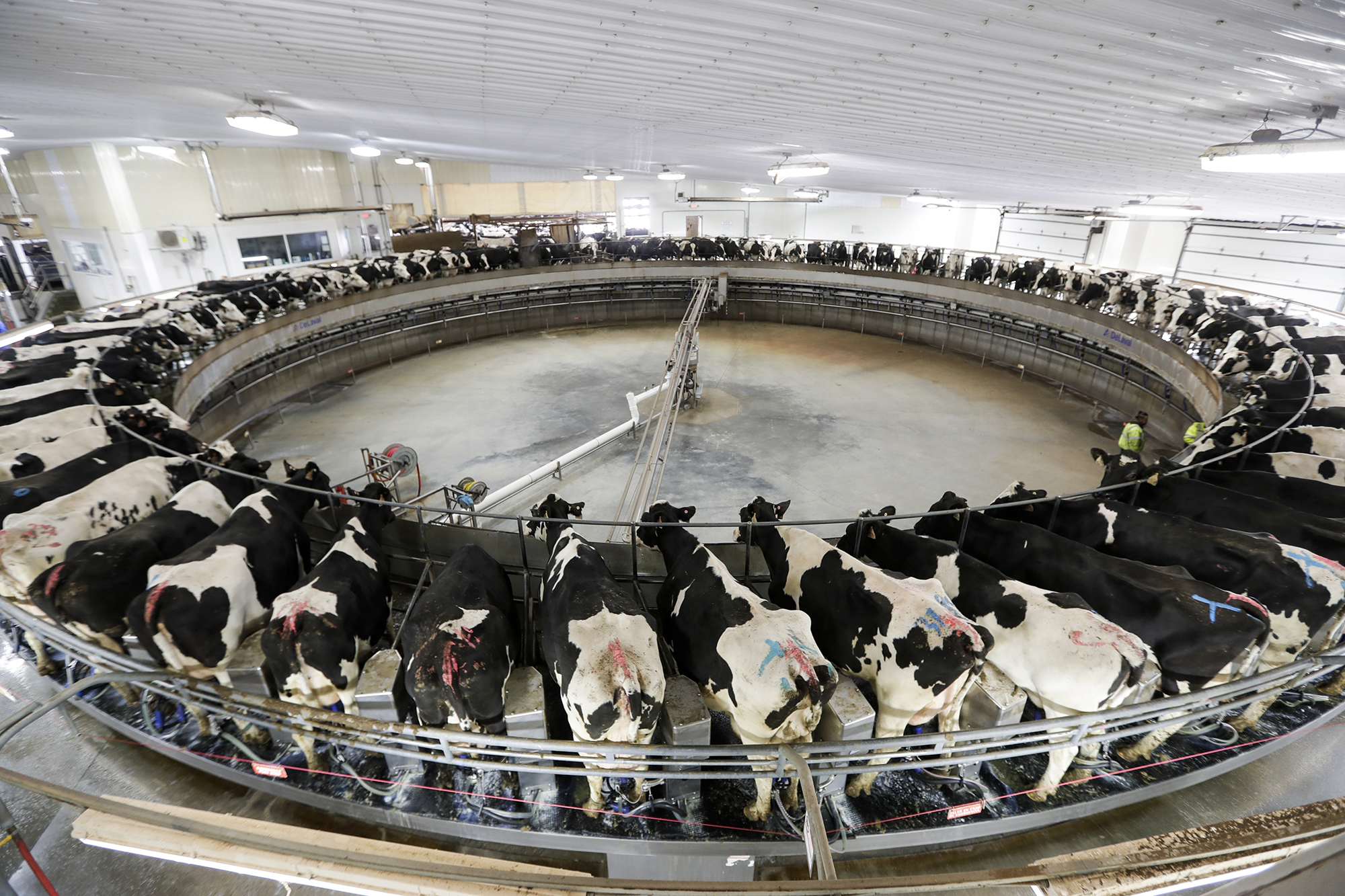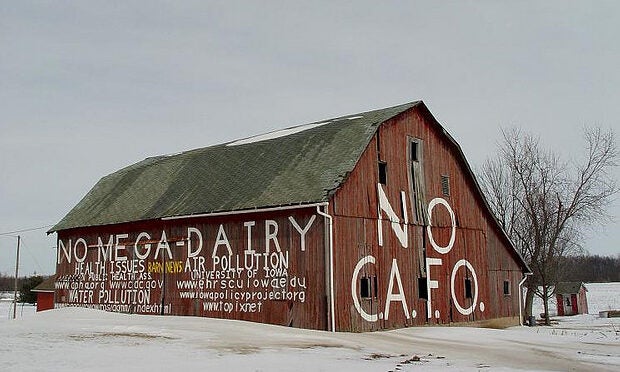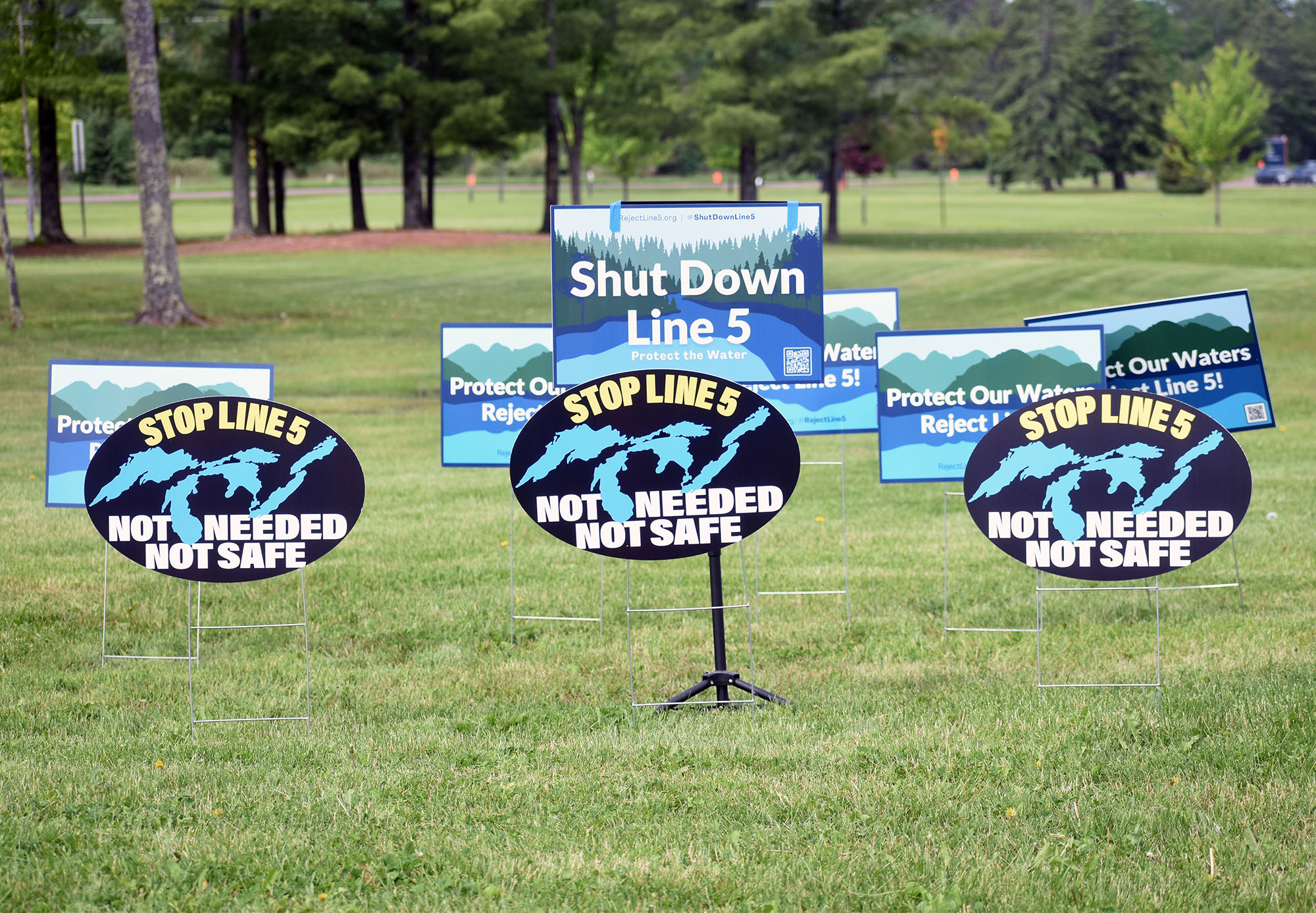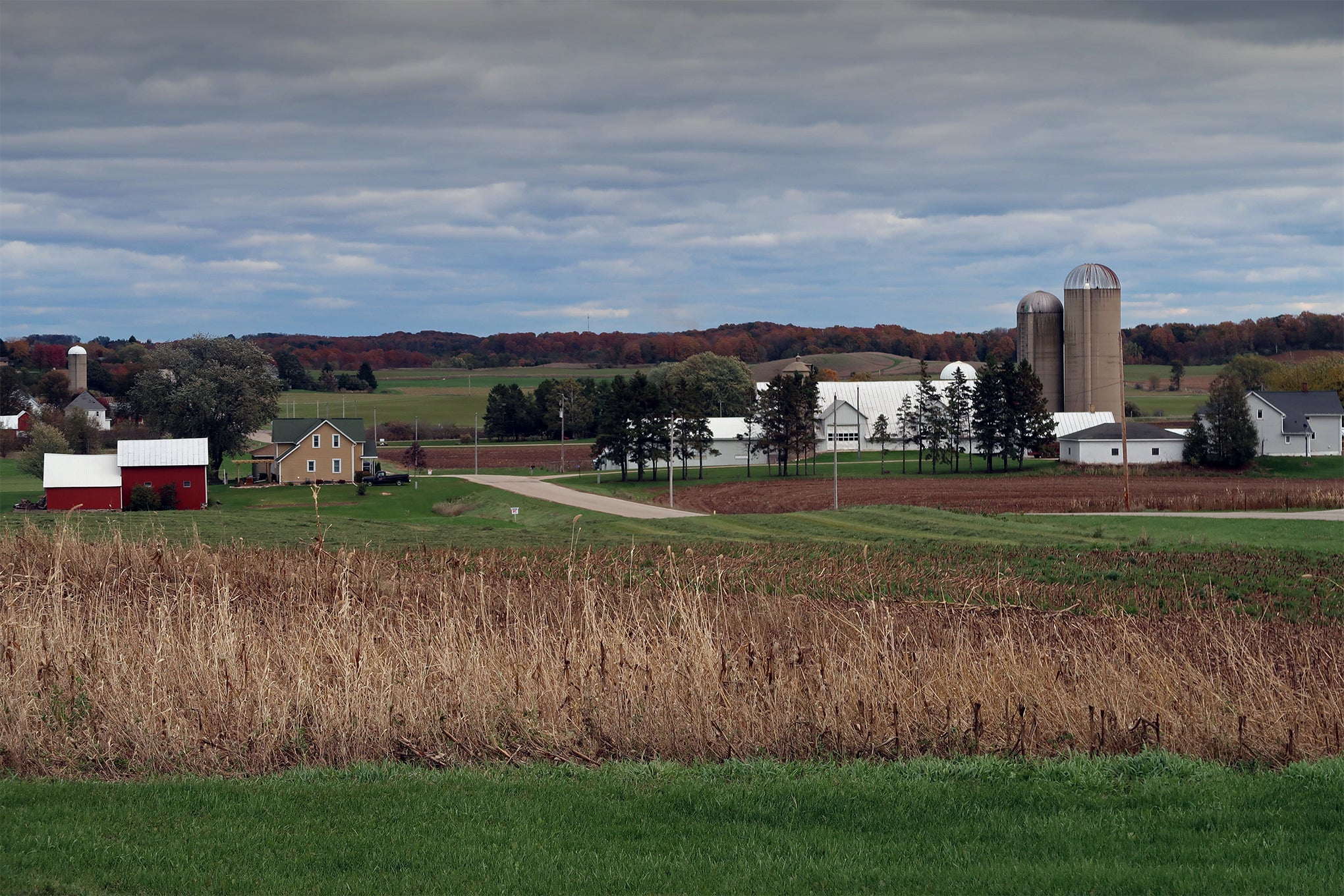Environmental advocates and legal experts say the outcome of this month’s Wisconsin Supreme Court election will affect a number of cases coming before the court.
The court retained its 4-3 liberal majority after the victory of Dane County Judge Susan Crawford over Waukesha County Judge Brad Schimel.
Some cases that may come before the court involve the Wisconsin Department of Natural Resources on challenges to its authority, policies or decisions on environmental standards.
Stay informed on the latest news
Sign up for WPR’s email newsletter.
Cases challenging DNR over CAFO permits
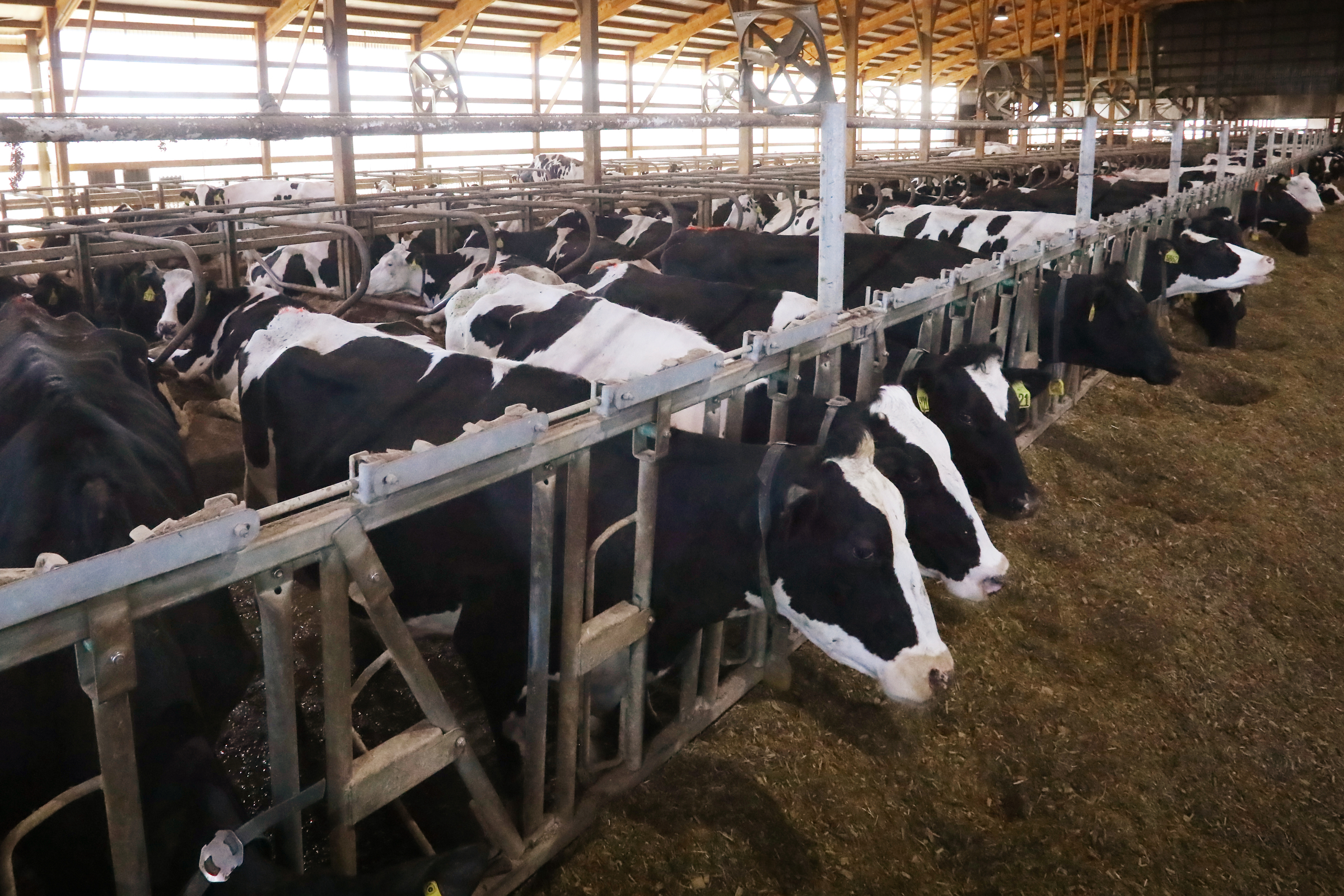
In 2023, the WMC Litigation Center sued the DNR in Calumet County Circuit Court on behalf of the Wisconsin Dairy Alliance and Venture Dairy Cooperative.
The dairy groups argue the agency unlawfully required the state’s more than 300 concentrated animal feeding operations, or CAFOs, to obtain wastewater discharge permits. The large livestock farms are required to obtain such CAFO permits and take steps to prevent manure from polluting water. A Calumet County judge ruled in favor of the DNR.
Dairy groups appealed that decision. An appeals court panel could issue a ruling later this year, which could be appealed to the Supreme Court. Environmental groups say the legal challenge could severely limit the DNR’s ability to protect state waters from manure runoff or spills.
“We think we need to be doing more to address water pollution from CAFOs, not exempting them from permits,” said Evan Feinauer, staff attorney with Clean Wisconsin.
The DNR has also been facing a challenge brought by B&D Dairy over the agency requiring groundwater monitoring at the 9,000-cow dairy in Marinette County. The case is tied to a 2021 ruling by the Wisconsin Supreme Court, which found the DNR has broad authority to impose conditions on farms to protect the state’s waters. Conservative justice Annette Ziegler sided with liberal justices in that decision.
Last year, a state appeals court upheld a lower court ruling that sided with the DNR on its permit conditions for the farm.
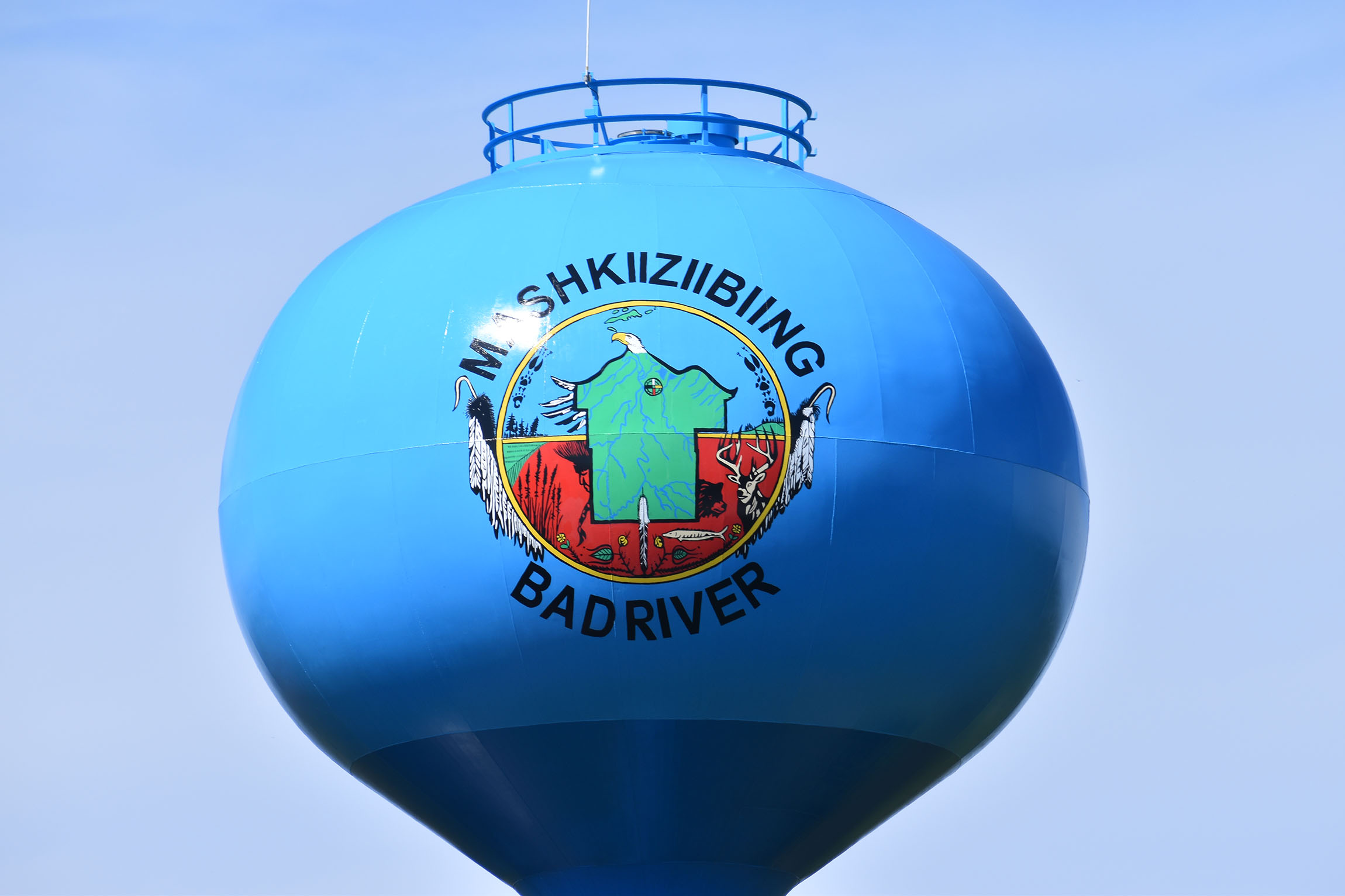
Bad River tribe, groups challenge DNR over Line 5 permits
In December, the Bad River Band of Lake Superior Chippewa and environmental groups sued the DNR over permits issued for a Canadian energy firm’s plans to reroute its Line 5 pipeline.
The pipeline carries up to 23 million gallons of crude oil and natural gas liquids daily across northern Wisconsin, and the tribe previously sued to shut down and remove Line 5 from its lands. Enbridge proposed rerouting the pipeline, and the state issued permits for the project in November.
The challenge is in its early stages, but Steph Tai, an environmental law professor at the University of Wisconsin-Madison, said the proposed reroute is controversial as concerns have been raised about a recent spill in Jefferson County on another Enbridge pipeline.
“There’s been general public health concern, and there’s also a tribal authority concern coming from the Bad River Band of Lake Superior Chippewa’s reservation, and that’s likely going to get before the Wisconsin Supreme Court,” Tai said.
Hearings will be held on the challenge later this year.
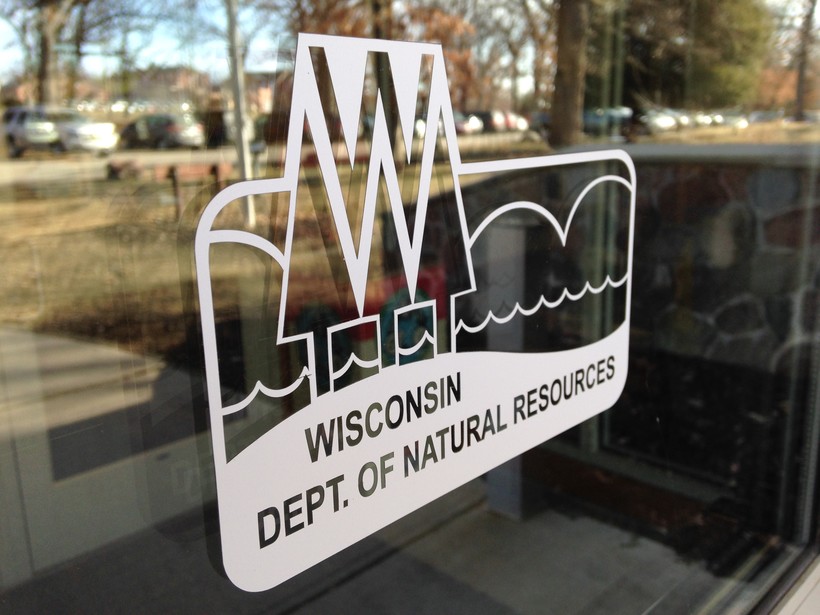
DNR faces challenges on public use of flooded lands, wolf plan
In 2023, Thomas Reiss of Ixonia sued the DNR over policies related to the public trust doctrine under the state Constitution, which ensures public access to navigable waterways. The DNR has enforced the public’s right to use those waters up to the ordinary high water mark on the shoreline.
Reiss and his attorneys argued that airboat operators trespassed on his land when the nearby Rock River flooded his property, challenging DNR guidance that people can use waterways as long as they “keep their feet wet.”
A Jefferson County judge ruled that the public can’t go beyond the normal high water mark during times of flooding. Reiss appealed the ruling.
“However the case shakes out, it’s going to be important for folks like anglers and boaters and people who own waterfront property in terms of understanding who can be where, doing public trust right stuff — fishing, swimming, boating, etc. — and where they can’t,” Feinauer said.
Feinauer said the case could be appealed to the state Supreme Court late this year or early next.
The court may also hear a case brought by the Great Lakes Wildlife Alliance against the DNR over its updated wolf management plan. The group sued the agency and accused the DNR of violating the state’s open meetings law and rejecting public input from the group and wolf researchers.
A Dane County judge dismissed the case last year, but the group has appealed the ruling.
Cases set to be decided by the current court
The court has several major cases before it that could affect environmental issues that it will decide before Crawford replaces retiring Justice Ann Walsh Bradley.
They include a lawsuit filed by Wisconsin Manufacturers and Commerce against the DNR that challenged the agency’s authority to require businesses to clean up PFAS contamination.
The case has significant implications for the state’s spill law that was enacted around 50 years ago. The law requires anyone who causes, possesses or controls a hazardous substance spill to clean it up.
The court will also decide a pair of cases revolving around separation of powers. One involves a case brought by Gov. Tony Evers against Republican lawmakers over the Legislature’s ability to suspend or block administrative rules. The outcome of the case could affect environmental regulations brought forward by the DNR, some of which have been suspended by the committee.
The other involves a lawsuit filed by Wisconsin Attorney General Josh Kaul against the GOP-controlled Legislature over a law passed during a lame duck session at the end of former Republican Gov. Scott Walker’s term. The law gave the state’s Joint Committee on Finance the power to approve or deny settlements in lawsuits prosecuted by Kaul, including environmental enforcement cases.
Those cases will be decided in the coming months.
Wisconsin Public Radio, © Copyright 2025, Board of Regents of the University of Wisconsin System and Wisconsin Educational Communications Board.

